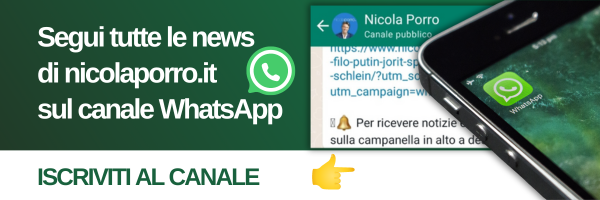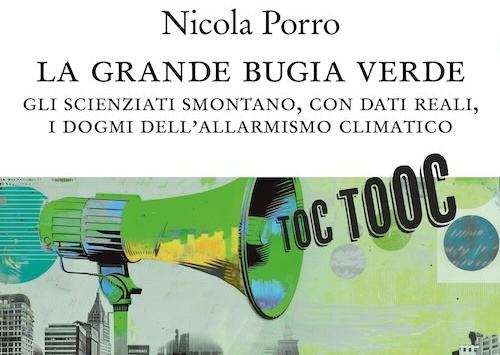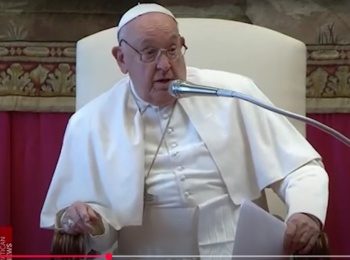Pubblichiamo l’intervento di Daniele Capezzone al convegno “Gulf Trade: Seizing New Opportunities”
First of all, let me thank Dan Hannan and the IFT for today’s invitation and for this opportunity to share ideas and views.
In about ten minutes, four little notes:
1. an economic remark (from a Western perspective: or, better, from the perspective of a free-marketeer living in an ideologically confused Western political environment…);
2. a few general words on blockades and embargoes;
3. then, a geopolitical remark considering – if I might – the different points of view existing in the complex “ecosystem” of the Gulf;
4. and – in the end – some blessed opportunities we should make the most of, as far as I am concerned.
1. The economic remark (looking at the West).As it often happens, it was Allister Heath, the bright commentator and editor of The Sunday Telegraph, to put things in the right context. In the Western world, our parents – and ourselves too, when we were young – used to choose between simple/clear/binary/alternative options. On the one hand, as consumers: every night between two or three tv-channels, for example. On the other hand, as voters and electors: between Labour and Conservatives, Democratic or Republicans, socialists or free-marketeers, etc. Now, on the contrary, we have come into the Amazon era, into the Netflix age, and everyone has got used to getting what they want, when they want, in their extremely personalized and individually-tailored version. Every single nuance, every sigle shade can be demanded.
The very same revolution has been coming to politics: it is what Heath calls “pick and mix political age”. So, I’m sorry to inform you that it won’t be easy to find ideal consistency and logical reasoning, let alone simple/clear/binary/alternative options. You’re likely to face incoherent ideas, ultraspin politics, (sometimes) lack of knowledge, hybrid solutions as a rule (not as an exception). It’s going to be the political and cultural triumph of the conjunction “but”: “I am a free marketeer but…”, “I believe in free trade but…”, “on the one hand, but on the other hand…”: perhaps too many hands…
That’s why I think we should cross out these “buts” and start once again from some clear principles. There is a political speech which was delivered in Belgium 30 years ago (by the way, next SeptemberI think we should celebrate the anniversary): and if you read it now, it seems to have been written 30 minutes ago. It was Mrs Thatcher’s Bruges speech.
Let me remind you a quotation, when she makes the moral case for free trade without any “but”:
-we shouldn’t be protectionist;
-the expansion of the world economy requires us to continue the process of removing barriers to trade;
-it would be a betrayal if, while breaking down constraints on trade inside, we were to erect greater external protection;
-we must ensure that our approach to world trade is consistent with the liberalization we preach at home.
I think that, 30 years later, our Western countries should start from here: no trade barriers, no embargoes, no restrictions.
2. A few general words on blockades and embargoes. Let me make it crystal clear. There are at least three general reasons why blockades and embargoes do not work.
First: there are often humanitarian consequences, and hitting ordinary people is not a good idea.
Second: embargoes and blockades are sometimesineffective, because there are often players interested in helping a state dodge sanctions.
Third: this kind of measures usually backfire, because they strenghten a government, instead of weakening it. In every regime’s toolkit you will find the allegation of a political persecution from foreign players. I come from Italy, and you know how, according to Mussolini’s propaganda, he was the victim of a “plutocratic-masonic-jewish” conspiracy orchestrated by Western forces. And so many Italians – incredible as it may seem – believed him.
3. The geopolitical remark (looking at the Gulf). We know very well how delicate and complex the “ecosystem” of the Gulf is.
Anyhow (you may like it or not, but you must cope with it), there has been a game-changer. Barack Obama is no longer the President of the United States. For eight years, he had been carrying through a military, political (and I would say: moral) withdrawal from the Gulf and from the Middle East in general. As far as I am concerned, it was a wrongstrategy. But it was his strategy: and several players (of course, each of them extremely different from the others: Isis, Iran, and – from their different perspectives – Russia and Turkey) made the most of that withdrawal to fill the vacuum and gain ground.
Now, in spite of the dominant isolationist tones of his electoral campaign, President Trump has decided to play an assertive role and to reverse many of the key-points of Obama’s strategy. Of course, no one knows (perhaps President Trump himself does not know) to which extent he will be able, willing andconvinced to pull off a consistent and coherent strategy. But we are seeing some elements, and I would say three interesting and positive elements:
1. as the great David Goldman wrote on Asia Times, Trump’s “’drive them out’ speech” means that no one can play double game in the future. Let me quote Goldman: “The United States will not tolerate terrorism, and it will not tolerate the toleration of terrorism. European governments were resigned to a certain level of terrorism as the price of tranquil relations with large Muslim populations that harbor significant numbers of terrorist sympathizers and with Muslim regimes that support terrorist groups”;
2. the Iran deal is no longer an indisputable frame of reference;
3. Israel is once again an essential ally for the Us.
Coming to terms with these facts on the ground, every key-player in the Gulf (and in the Middle East) will have to revise their choices, and to forge a freshstrategy.
-Iran will no longer be the major powerbroker in the region, let alone be able to use Syria as an attacking platform against Israel;
-all of the other players should think twice, before trusting Teheran, whose economy is largely controlled by the Pasdaran;
-Turkey will have to choose whether to be positively part of a global reset, enforcing its role as a key-Nato member, as a partner and ally, or to design a role as a global competitor;
-in Saudi Arabia, Prince Salman will have to show to which extent he is ready to deliver actual change;
-all of the other key-players will have to choosewhether to wait and see; or to go on exploiting fissures and contradictions among one another, forging changeable alliances (“the enemy of my enemy is my friend”); or to consider themselves too wealthy to be ignored; or to pursue an ambiguous balance between a strong relationship with the Us (offering bases, etc) and old ties with extremist groups.
It seems to me that the Us Secretary of State Rex Tillerson has offered a wise suggestion, urging Saudi Arabia and its allies to resolve their dispute with Qatar, urging de-escalation on all of the sides, pointing out how the blockade boosts rhetoric and propaganda in Arab mainstream-media and social-media, and (let me quote) explaining that a fresh cooperation in the Gulf (involving all of the countries) might “bolster our effectiveness on many fronts, particularly on counterterror, countering terrorism, defeating Isis, and countering the spread of Iran’s malign influence”.
4. Opportunities to pick. I am winding up. As you can see, everyone will have to choose whether to stand by tactically or (as I personally wish) to be involved in a strategic and challenging reset. Specially in that second case, free trade can offer a blessed opportunity.
Trade can be an enabling factor. Our British friends, due to their wise choice to get out of the Eu and to embrace once again the world (“Global Britain”), can play a major role: as an economic partner (helping anyone in the Gulf to grab opportunities and get winning contracts), and also as a political partner to build together a new geopolitical bridge, to turn over a new leaf, to restore and enforce the mutual confidence which is needed for a real reset.
As a European guy, I wish I could say the same for the Eu. But, of course, I can’t. Thank you.



